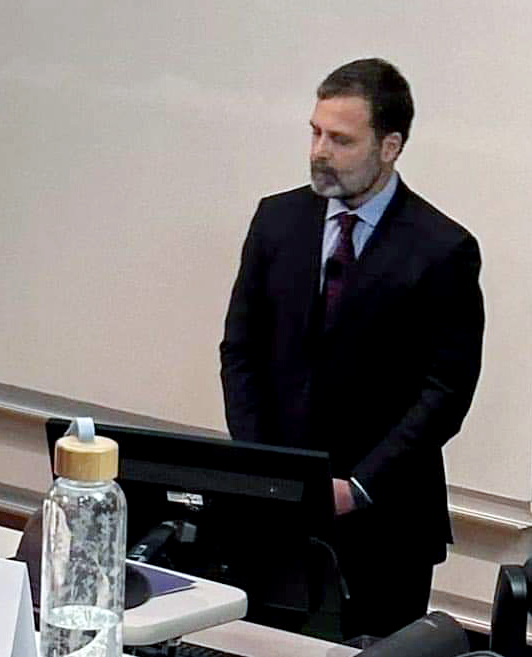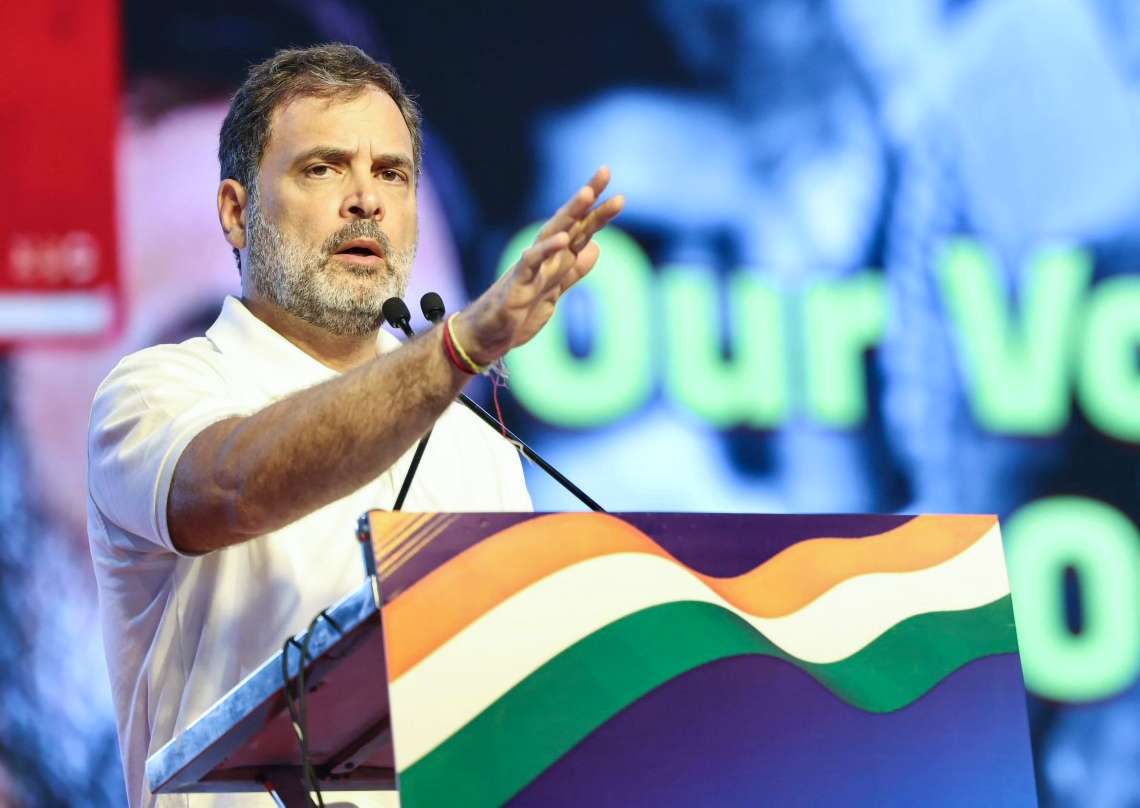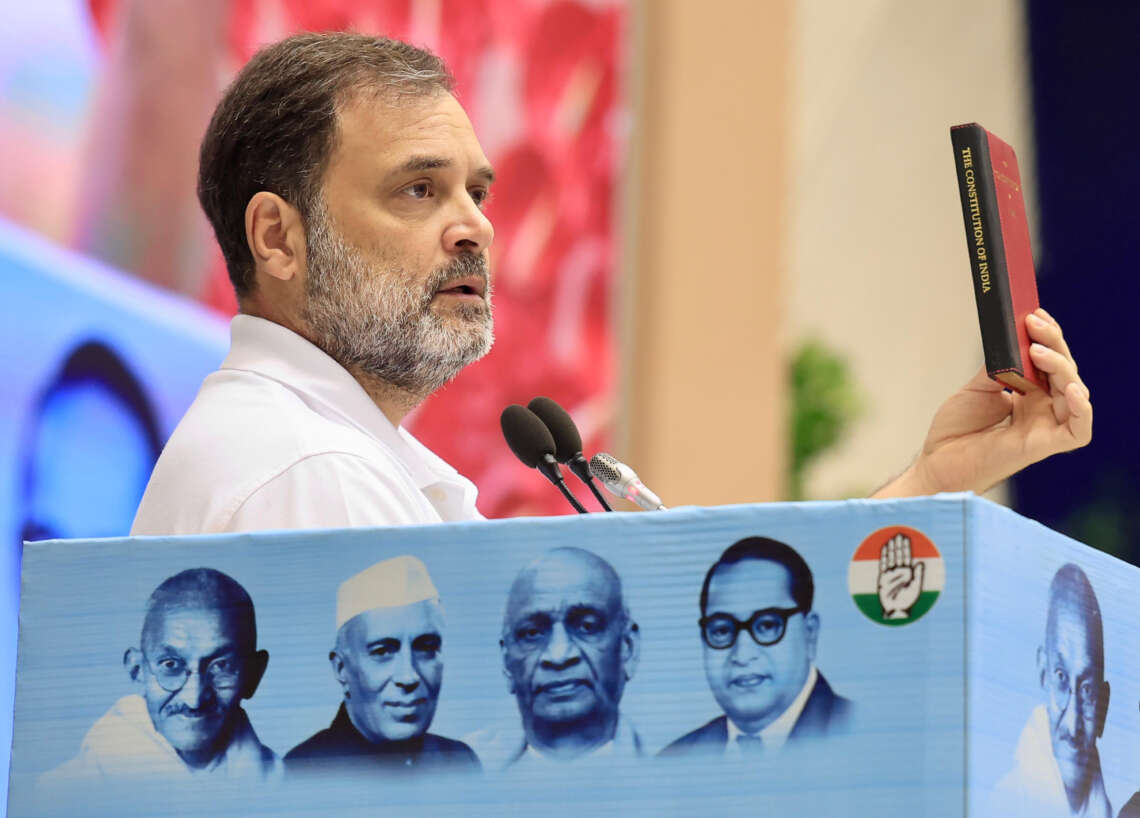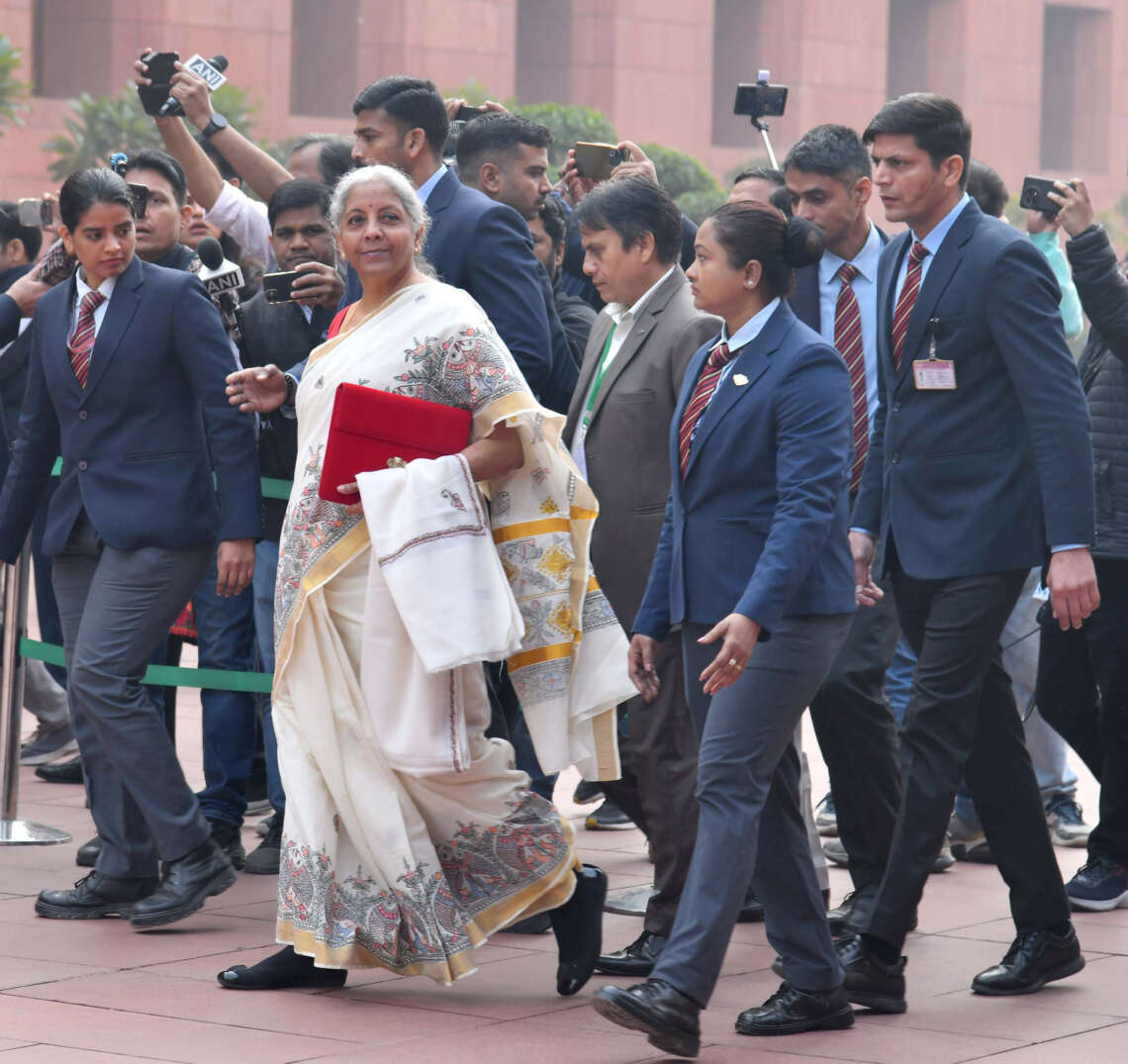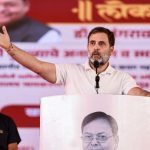Congress leader Rahul Gandhi underlines importance of finding a way of listening compassionately to new concerns in the 21st century at University of Cambridge lecture…reports Asian Lite News
Congress leader Rahul Gandhi has called for new thinking to promote a democratic environment globally as opposed to a coercive one. He cited a decline in manufacturing in democratic countries as production shifted to China and said it has led to mass inequality and anger which needed urgent attention.
“…we need new thinking about how you produce in a democratic environment…” he said in his lecture at the University of Cambridge titled “Learning to Listen in the 21st Century” on Tuesday.
Gandhi, who is a visiting fellow at the Cambridge Judge Business School, spoke about two divergent perspectives of the US and China since World War II, especially since the 1991 collapse of the Soviet Union.
Gandhi said the US has become less open after September 11, 2001, terror attacks in addition to shedding manufacturing jobs.
He underlined the importance globally of finding a way of listening compassionately to new concerns in the 21st century. He added the art of listening is very powerful when done consistently and diligently.
Gandhi, who is on a week-long tour of the UK, also spoke about his 4,000-km walk Bharat Jodo Yatra through 12 states from September to January to draw attention to “prejudice, unemployment and growing inequality in India”.
He is scheduled to interact with representatives of the UK chapter of the Indian Overseas Congress and address an Indian Diaspora Conference in London.
He said the decline in recent decades of manufacturing in democratic countries, including India and the US, as production has shifted to China, which has produced mass inequality and associated anger that need urgent attention and dialogue.
“We simply cannot afford a planet that doesn’t produce under-democratic systems,” he told the MBA students.
“So we need new thinking about how you produce in a democratic environment compared to a coercive environment”, and a “negotiation about this”.
Rahul was introduced to the MBA audience by Kamal Munir, Pro-Vice-Chancellor at the University of Cambridge and Professor of Strategy and Policy at the Cambridge Judge Business School, who said the speaker comes from a “long lineage of global leaders”.
Gandhi’s lecture was divided into three parts, starting with an outline of the ‘Bharat Jodo Yatra’, a 4,081-km walk he led through 14 Indian states from September 2022 to January 2023 to draw attention to “prejudice, unemployment and growing inequality in India”.
The second part of the lecture focussed on the “two divergent perspectives” of the US and China since World War II and especially since the 1991 collapse of the Soviet Union.
The former Congress President said that in addition to shedding manufacturing jobs, the US had become less open after September 11, 2001, while China “idolises harmony” through organisation around the Chinese Communist Party.
The final aspect of his lecture was around the theme of “Imperative for a Global Conversation”, in which he knitted the themes together in a call for a new type of receptiveness to various viewpoints — explaining that a ‘yatra’ is a journey or pilgrimage in which people “shut themselves down so they can listen to others”.
Rahul also has a Cambridge connection — he did an MPhil for a year at Trinity from 1994-95.
In a statement, the Judge Business School said “the Cambridge MBA programme is for globally minded, successful individuals who want to understand the complexities of business and society, so Cambridge Judge Business School thanks Mr Gandhi for sharing his experience and insight on global economics and policy-making”.
ALSO READ-Rahul Gandhi meets Sheikh Hasina


